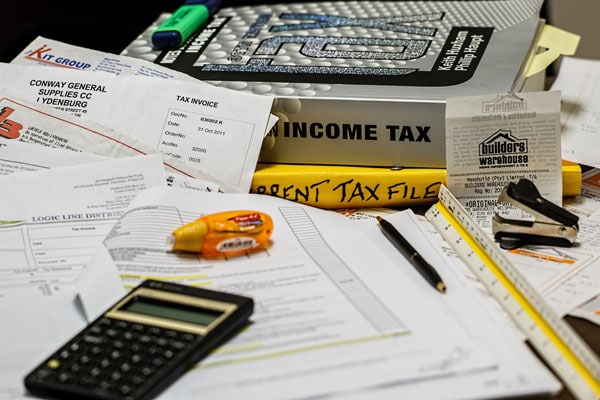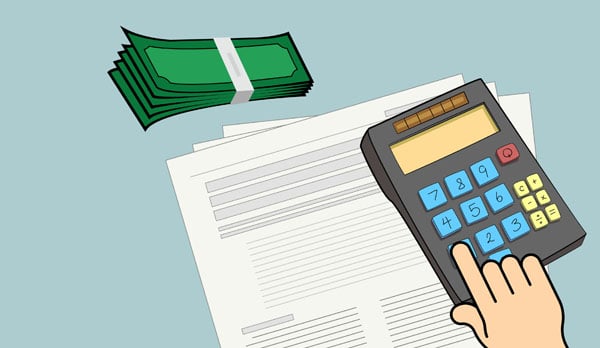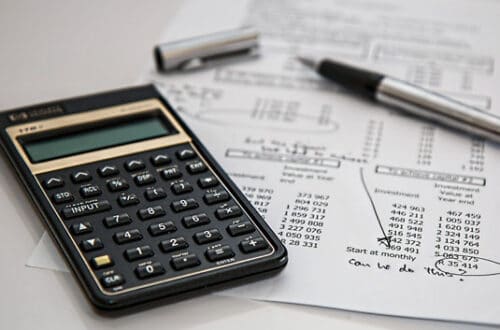
Accounting for Beginners
Many business owners understand the need to understand accounting for beginners. When you know what is happening in your accounts, you can see if your business is making a profit or a loss.
Accounting is the backbone of any business. Using the accounting cycle, business owners can gather information about business transactions and then make a report on financial information.
You may have an accountant working for your business and have trusted them with your financial matters.
They will help prepare information for the HMRC (UK) or the IRS (USA) and they will provide financial advice for your company.
Although it is the job of the accountant to manage the day to day finance of your business, you should understand some basic accounting principals too.
Online Accounting Courses For Beginners
Have you got what it takes to become a successful accountant?

Do you need to overcome a gap in your skill set to land your next accounting job?
Are you a business owner who needs to understand the fundamentals of your bookkeeping?
If you are ready to advance our carer in accounting, there are a range of online courses available to help you find success.
You can become fluent in the accounting topics you need to focus on to move from beginner to intermediate to advanced.
Whether you need to improve your accounting skills for your own business or you want to follow a career path in bookkeeping, you will find the course for you.
These professional courses will give you the training you need to manage your accounts or advance your accounting career.
These professional accountancy training courses are available in English, Hindi and Arabic.
Accounting Basics that a Business Owner needs to Know
To understand how financially stable your business is, it is important that you learn basic accounting knowledge.

As a starting point, you should become familiar with the Generally Accepted Accounting Principles (GAAP). GAAP is the process used by your accountant to create your financial statements.
To keep on top of your financial matters you should understand the system that your accountant uses. This means learning how double entry bookkeeping works.
There are some basic accounting terms that you will need to become familiar with.
Liabilities
- Assets
- Revenue or income
- Owner’s equality
- Gain
- Loss
- Expenses
Assets
An asset is a resource that has some type of economic value and have some form of future benefit. Assets can be controlled by an individual, corporation, or country.
Assets are purchased to increase the value of the firm or provide some kind of benefit.
An asset can be thought of as having a value in the future, generating cash flow, and increasing the value of the firm.
Once acquired, all assets are reported on the balance sheet.
Liabilities
Liabilities are the debt that the company has. This can include loans, mortgages, bills that are not paid, and any money that is owed to another.
If you have a promise to pay someone money in the future it is a liability.
The balance sheet can be divided into three sections:
- The asset section shows how much the company has.
- The equality section tells how much money has been invested in the business.
- The liability section is how much money is owed.
Balance sheets are written with the assets on the left and the liabilities on the right.
Owner’s Equality
The owner‘s equity is one of the three main parts of the sole proprietorship balance sheet and is part of the equation.

Assets = Liabilities + Owner’s Equity.
The Owner’s equality is the investment the owner has in the business minus the money they take out. The calculation also includes the net income or net loss since the business started.
The Owner’s equity is the residual claim on business assets because the liability has a higher claim.
Revenue vs. income
Revenue is the amount of money generated by the sales of a company while income is the net profit minus any business expenses.
Revenue is the total amount the business is bringing in. Income is the amount that is being earned as profit minus expenses.
What is revenue?
Revenue can also be called gross sales. It is the total amount of money the company makes from operations. Investment gains are part of the revenue. It is at the top of the income statement.
What is income?
Income can also be called net income or net profit. It is the amount of money earned once the operating expenses have been removed.
Income is called the bottom line and it will give the full picture of the cash flow of the company. It is the total coming in and out of the building.
This will be found at the bottom of the income statement.
Expenses
An expense is money spent or costs to the business in the effort to make a profit. This is the cost of conducting business.
They are the sum of the activities and hopefully, after this, there will be a profit.
There is a difference between a cost and an expense. The cost is the cash that is used to purchase an asset.
An expensive is the cost that has been used to help make revenue. All expenses are going to be costs but not all of the costs are going to be expenses.
What is an Expense?
The expense can be:
- Office supplies that use up the cash
- Purchase of equipment or a building that decreases over the years due to depreciation.
- Prepaid expenses such as rent that uses the cash each month.
Gains
A gain can be acquired from a number of sources. An excess of money can be a fair value or it can be the sale or the exchange of an asset.
A gain may be any financial tool that is sold for more money than it was purchased for.
Unrealised gains
In accounting, unrealised gains are due to an increase in certain assets such as the value of the land that a business owns.
It is not realised since the land has not to be sold and it is still owned by the company.
A gain is on the income statement and it is under the non-operating and other revenue sections. It is recorded on the credit side.
All income statements that have an increase in the net income that was recorded as a creative and all of the accounts will decrease the bottom line. This should be recorded as a credit.
Losses
Losses are the removal or decrease in an asset or business resource. They cannot be recovered and they are not anticipated.
A common type of loss is the amount that the value of an asset will decrease over the life of the business.
Since business is there to make a profit it is important to know this information. All of the fixed or long terms assets lose value or depreciate over time.
The original value minus the depreciation is the loss. The assets that are recorded do not include any inventory that has been sold.
A business can also experience loss if the total expenses cost more than the amount of income that the business is bringing in over a set time.
This is known as the net operating loss or the net loss.
If you want to understand accounting for beginners, there are a number of options available for learning at home.
Are you an entrepreneur? Thinking of starting your own business? Read more about learning accounting skills as a business owner to help your business grow.




2 Comments
Pingback:
Pingback: